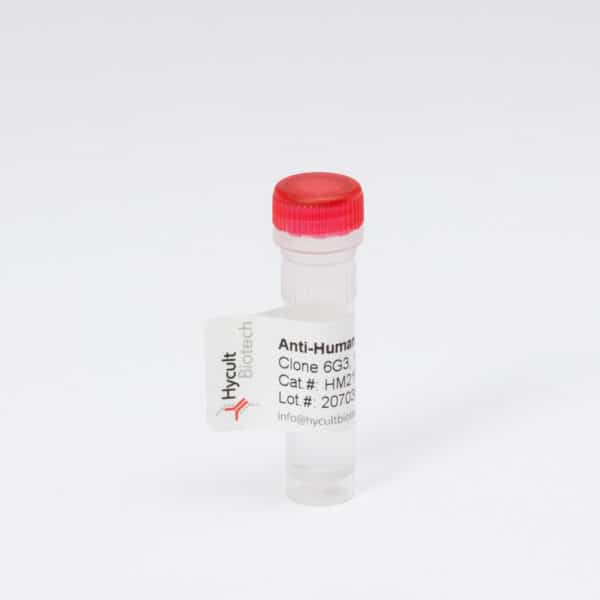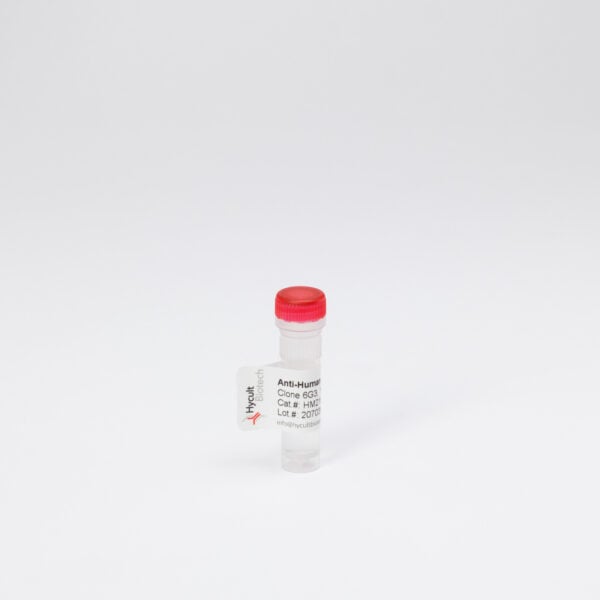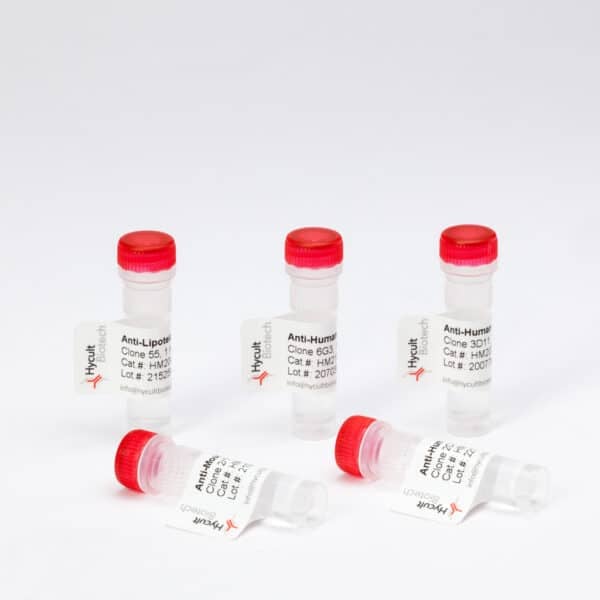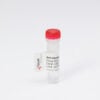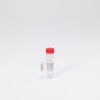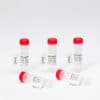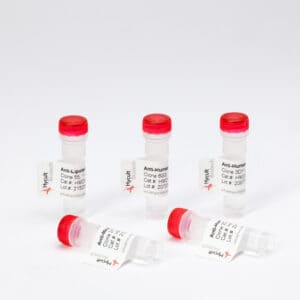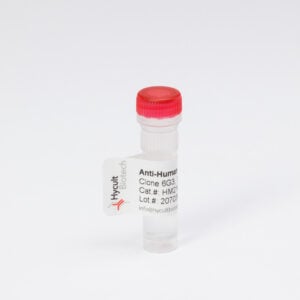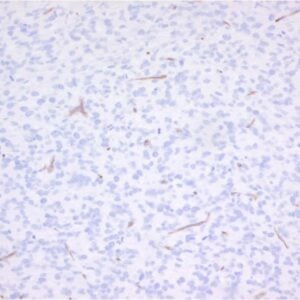HNP1-3, Human, mAb D21
€139.00 €530.00Price range: €139.00 through €530.00
Human neutrophil defensins (alpha-defensins) belong to the family of cationic trisulfide-containing microbicidal peptides. Besides microbicidal, the peptides exert chemotactic, immunomodulating and cytotoxic activity and participate in host defense and inflammation. Defensins are important effector molecules against enveloped viruses, bacteria, fungi and protozoa, and protein concentrations ranging from 0.5 to 5 μM were shown to kill a wide range of microbes in vitro. Defensins have the ability to attack susceptible microorganisms and destroy the structure of target cell membranes. Several members of each defensin family were shown to act as microbicides against distinct Gram-negative and Gram-positive bacteria, as well as fungi and viruses in vitro.
Azurophilic granules of neutrophils contain Human Neutrophil Peptide (HNP) 1-4, which are highly homologous. The three principal human defensins, HNP 1-3, are unique to neutrophils and- account for about 99% of the total defensin content of these cells. Defensins HNP 1-3 are almost exclusively expressed in neutrophils, therefore it is considered a neutrophil cell marker. Measured amount of defensins is 3-5 microgram per million human neutrophils. When treated with HNP the outer membrane of Escherichia coli becomes permeable. This permeabilization furthermore coincided with the cessation of RNA, DNA and protein synthesis, and with a decreased bacterial viability Defensins are relatively resistant to proteolysis, low pH and boiling. Activation of neutrophils leads to rapid release of HNP. HNP can be measured in plasma and other body fluids during infection and inflammation. In normal plasma very low levels of HNP are present. Activation of polymorphonuclear leukocytes (PMN) in plasma, as occurs during clotting of blood, leads to a rapid release of HNP.
Anti HNP 1-3 antibody clone D21 recognizes natural HNP 1-3 in biological solutions by means of ELISA in tissue sections and leukocyte smears fixed with ethanol, methanol/acetone or paraformaldehyde, in flow cytometry analysis of human neutrophils stained by cell permeabilization method and in Western-blotting (non-reduced). Furthermore the antibody is cross reactive with Rhesus monkey and cynomolgous macaques HNP1-3.
FC: Cells were fixed and permeabilized, incubation with primary antibody for 30 min.
FS: In vitro:0.5ug/ml, 30min -24h at 37 °C
IF: 1% formaldehyde fixed cells were stained with 5 µl Ab/million cells for 15 min.
P: Formalin fixed sections were deparaffinized and blocked with 1% hydrogen peroxide and serum or 5%BSA
W: Blots blocked with 10% serum for 30'. Primary antibody 2h RT 1:100 in TBS/0.01% tween-20
